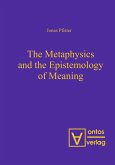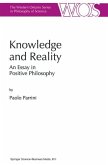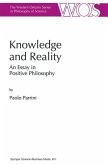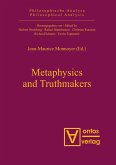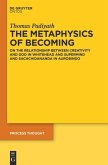Ordinary language and scientific discourse are filled with linguistic expressions for dispositional properties such as soluble, elastic, reliable, and humorous. We characterize objects in all domains physical objects as well as human persons with the help of dispositional expressions. Hence, the concept of a disposition has historically and systematically played a central role in different areas of philosophy ranging from metaphysics to ethics. The contributions of this volume analyze the ancient foundations of the discussion about disposition, examine the problem of disposition within the context of the foundation of modern science, and analyze this dispute up to the 20th century. Furthermore,articles explore the contemporary theories of dispositions. offershistorically informative and up-to-date contributions on a subjectbordering onepistemology, metaphysics, and philosophy ofthe mind especiallyof interest to students andacademics in the following fields: philosophy, linguistics, history of science
Sowohl die Alltags- als auch die Wissenschaftssprache sind reich an Dispositionsausdrücken wie "löslich", "elastisch", "zuverlässig" und "humorvoll". Wir charakterisieren Objekte aus allen Gegenstandsbereichen, sowohl physische Gegenstände als auch menschliche Personen, mit Hilfe von dispositionellen Ausdrücken. Der Begriff der Disposition hat deshalb in der Philosophie in historischer und in systematischer Hinsicht immer eine entscheidende Rolle gespielt. Der Band präsentiert die reichhaltigen philosophischen Auseinandersetzungen um die Existenz, die Natur und die Rolle der Dispositionen von der Antike bis zum 20. Jh. und diskutiert aktuelle Theorien der Dispositionen in der Metaphysik, Erkenntnistheorie und Philosophie des Geistes.
Sowohl die Alltags- als auch die Wissenschaftssprache sind reich an Dispositionsausdrücken wie "löslich", "elastisch", "zuverlässig" und "humorvoll". Wir charakterisieren Objekte aus allen Gegenstandsbereichen, sowohl physische Gegenstände als auch menschliche Personen, mit Hilfe von dispositionellen Ausdrücken. Der Begriff der Disposition hat deshalb in der Philosophie in historischer und in systematischer Hinsicht immer eine entscheidende Rolle gespielt. Der Band präsentiert die reichhaltigen philosophischen Auseinandersetzungen um die Existenz, die Natur und die Rolle der Dispositionen von der Antike bis zum 20. Jh. und diskutiert aktuelle Theorien der Dispositionen in der Metaphysik, Erkenntnistheorie und Philosophie des Geistes.


